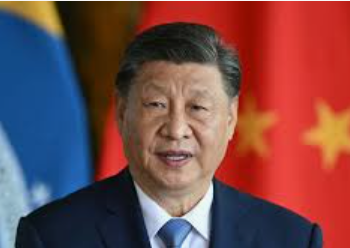By Emmanuel Onwubiko
May 29th 2015 marked a political watershed in the political annals of Nigeria in that for the first time since over half a century that the nation gained flag independence from Great Britain, the incumbent ruling political party relinquished power peacefully to an opponent after a keenly contested general election in which the rival party trounced the ruling party. The then Nigerian ruling-Peoples Democratic Party (PDP) headed by President Goodluck Jonathan conceded electoral defeat to the All Progressives Congress (APC) whose Presidential flagbearer Muhammadu Buhari emerged victorious and has since become the President.
At the micro political level, in Enugu State the status quo remained because the Peoples Democratic Party which paraded a formidable team of governorship and Deputy governorship candidates retained the office of governor from the now out-gone governor Sullivan Chime, a lawyer who was once the Enugu State chief law officer. So eight years after the Sullivan Chime’s era, his successor who was a senior parliamentarian at the National House of Representatives in Abuja has since been inaugurated and he told Nigerians that he is all out fully determined and motivated to make Enugu to remain at work for the benefits of the good people of Enugu State.
Well, few days back during my telephone conversations with the Enugu State governor at his prompting, he specifically informed me of his administration’s determination to upgrade the rating of the State from a typical civil service state to that of the foremost private sector-driven micro economies in Nigeria. Enugu State no doubt is home to some few vibrant manufacturing companies in the brewery sub-sector of the economy but the state is largely celebrated as a civil service state even as in the Igbo politico-cultural perspective, Enugu is still the political and administrative capital of the Igbo speaking South-East region. But, Enugu needs to grow beyond those cosmetic appellations and become attractive to willing investors who would genuinely mobilise their funds and capital to establish industries in the beautiful State known for its rich coal, limestone and other natural resources the abundance of talented individuals those willing investors will not find it difficult to recruit some of the best brains to drive their companies to greater heights.
Governor Ifeanyi Ugwuanyi told me that his decision to set up an investments working group to sensitize the global business community of existing economic and business potentials of Enugu State was because of his resolve and that of his team to bring about the actualisation of the economic blueprints of the Peoples Democratic Party on which platform he rode to power courtesy of the legitimate authority and mandate handed to him by the generality of the electorate in Enugu State. To help him and his team to build Enugu State to become a business investment friendly climate I have gone to some length to organise a well researched finding to proffer panacea towards realising this objective for the general wellbeing and welfare of the people of Enugu State.
Enugu State historically was created on August 27,1999, with the city of Enugu as it’s capital and Enugu state derives it’s name from the capital city, ENUGU (top of the hill ) which was regarded as the oldest urban area in Igbo speaking area of South east Nigeria. The size of the economy of Enugu State and rate of its growth is to a large extent dependent on the performance of the national economy. The state’s economy is therefore being propelled by major development at both national and global economic environment. Economically, the state is predominantly rural and agrarian, with a substantial proportion of its working population engaged in farming, although trading (18.8%) and services (12.9%) are also important.
In the urban areas, trading is the dominant occupation, followed by public servants. A small proportion of the population is also engaged in manufacturing activities, with the more important manufacturing concerns located in Enugu, Oji, Ohebedim and Nsukka. But questions linger as to the availability of credit facilities from finance institutions to raise friendly interest-based loans to grow the private sector. Are Banks readily available to provide these essential life support that will aggressively expand the private sector economic base of Enugu State?
One of the challenges confronting most of the States of the Federation is inability to calculate the market value of the goods and services produced at the sub-national level on annual basis especially if looking at it statistically. change.
The experts opined that if states are allowed to compute their respective GDPs without proper synergy and coordination by National Planning Commission, there is likelihood that the sum total of all the State GDPs may exceed the national figure. This development does not provide the opportunity for States to calculate the actual performance of their various economies which would have provided the basis to determine the rate of economic growth. National Planning Commission in collaboration with the State Government and Donor Partners is said to be in the process of decentralizing GDP calculation of sub-regional level. This to many observers of development is a welcome development since the initiative will provide variable and vital statistics for analyzing the performance of the various sectors of the economy. Such statistical data are strategic to serve as the pulling force for genuine investors to take their investments to Enugu State. However, the UNDP Human Development report for Nigeria, indicate that as at 2007 the per-capital income for Enugu State stood at $307.60 (N46,140). Drawing from the national annual percentage growth rate of per capital income at 4%, the Enugu State per capita income grew from $307.60 (N46,140) in 2007 to $374.24 (N56,136.36) in 2012, representing 22% total percentage growth.
The State Government is dependent on the Federal Allocation and VAT as main sources of revenue and these accounts for about 84% of her resource envelop according to available narratives. This development which is common among many States of the Federation is largely attributed to the reality that Public Sector driven economy is what basically it is known for . However, the State is currently making effort to revise the trend through the Reform Initiative in Revenue Generation.
.Onwubiko writes from Lagos.











































